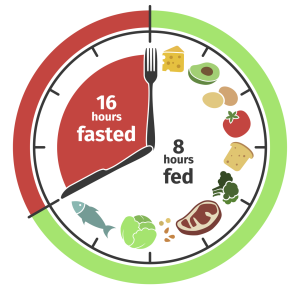Stomach pain can be caused by various factors, from digestive issues to more serious conditions. While over-the-counter and prescription medications are available, several home remedies can help alleviate discomfort. Here are 12 popular home remedies for stomach pain, ranging from dietary changes to natural remedies, along with tips on when to seek medical attention.
What is Stomach Pain?
Stomach pain, also known as abdominal pain or a stomach ache, refers to discomfort anywhere between the chest and groin. It can vary in intensity and may affect different parts of the abdomen, including the stomach, liver, pancreas, and intestines. Common symptoms associated with stomach pain include:
- Heartburn or acid reflux
- Nausea
- Bloating
- Gas
- Belching
- Farting
- Bad breath
- Hiccups or coughing
Causes of Stomach Pain
Stomach pain can arise from common issues like gas, indigestion, constipation, or diarrhea. Less common causes include:
- Pneumonia
- Heart attack
- Hernia
- Peritonitis (infection of the stomach lining)
- Bowel obstruction
- Appendicitis
- Pancreatitis
- Kidney stones
- Ovarian cysts
12 Home Remedies for Stomach Pain
- Drinking Water
Staying hydrated aids digestion and may reduce heartburn. Aim for around 8 cups of water daily, though needs vary based on activity levels, climate, and health.Pros: Helps with digestion and prevents dehydration.
Cons: Some might forget to drink water or prefer other beverages. - Avoiding Lying Down
Remaining upright can prevent heartburn, as lying down may allow stomach acid to move upward.Pros: Simple and effective for preventing acid reflux.
Cons: Not suitable if pain occurs while resting or sleeping. - Ginger
Known for reducing nausea and vomiting, ginger can be consumed in food, tea, or ginger ale.Pros: Effective for nausea, especially in pregnancy or chemotherapy.
Cons: Large doses may cause gas, heartburn, or discomfort. - BRAT Diet
The BRAT diet (bananas, rice, applesauce, and toast) is recommended for diarrhea, as these bland foods soothe the stomach and replace lost nutrients.Pros: Helps reduce diarrhea and replenish lost nutrients.
Cons: Not nutritionally complete for long-term use. - Avoiding Smoking and Alcohol
Both smoking and alcohol can trigger indigestion and gastrointestinal issues.Pros: Improves overall health and reduces disease risk.
Cons: Quitting may be challenging and require support. - Avoiding Difficult-to-Digest Foods
Steer clear of fatty, spicy, or greasy foods to prevent indigestion.Pros: Reduces stomach discomfort.
Cons: Sourcing fresh, non-preserved foods may be challenging in some areas. - Baking Soda
Baking soda can neutralize stomach acid and relieve heartburn.Pros: Provides quick relief for acid-related issues.
Cons: Unpleasant taste and overuse may cause side effects like muscle twitching. - Figs
Figs act as natural laxatives and can help with constipation and indigestion.Pros: Effective for easing constipation.
Cons: Should be avoided if experiencing diarrhea. - Aloe Juice
Aloe vera juice may offer relief from irritable bowel syndrome and colitis.Pros: Can alleviate symptoms of GERD.
Cons: May cause abdominal pain and cramps in some people. - Basil
Basil may reduce gas and inflammation, thanks to its anti-inflammatory properties.Pros: Easily available and beneficial for reducing gas.
Cons: Hard to find fresh basil in some areas. - Licorice
Licorice root tea may help with digestive symptoms, though its benefits are not fully confirmed.Pros: Can relieve digestive discomfort.
Cons: May raise blood pressure and lower potassium levels, which can be dangerous for some individuals. - Rice
Plain rice, part of the BRAT diet, can help with diarrhea and soothe the stomach.Pros: Affordable and widely available.
Cons: Excessive consumption may increase metabolic syndrome risk.
Prevention Tips
To prevent stomach pain, consider:
- Eating slowly
- Reducing fatty or processed foods
- Identifying and avoiding food intolerances
- Drinking more water
- Managing stress
- Exercising regularly
When to See a Doctor
If stomach pain persists, is severe, or is accompanied by alarming symptoms such as:
- Severe or sudden pain
- Vomiting blood
- Black or sticky feces
- Difficulty breathing
- Chest pain
- Jaundice
Seek medical advice immediately to ensure proper diagnosis and treatment.
Common Allergies and Intolerances
Food allergies and intolerances can cause stomach pain. Common triggers include:
- Milk
- Peanuts
- Tree nuts
- Soy
- Wheat
- Shellfish
- Fish
- Eggs
- Gluten
If you suspect food sensitivities, consult a healthcare professional for testing or an elimination diet.
Summary
Stomach pain can stem from various causes, including digestive issues and more serious conditions. Home remedies may provide relief, but consult a healthcare provider if symptoms persist or worsen.
#HomeRemedies #StomachPain #DigestiveHealth #NaturalRelief #Ginger #BRATDiet #AloeJuice




+ There are no comments
Add yours